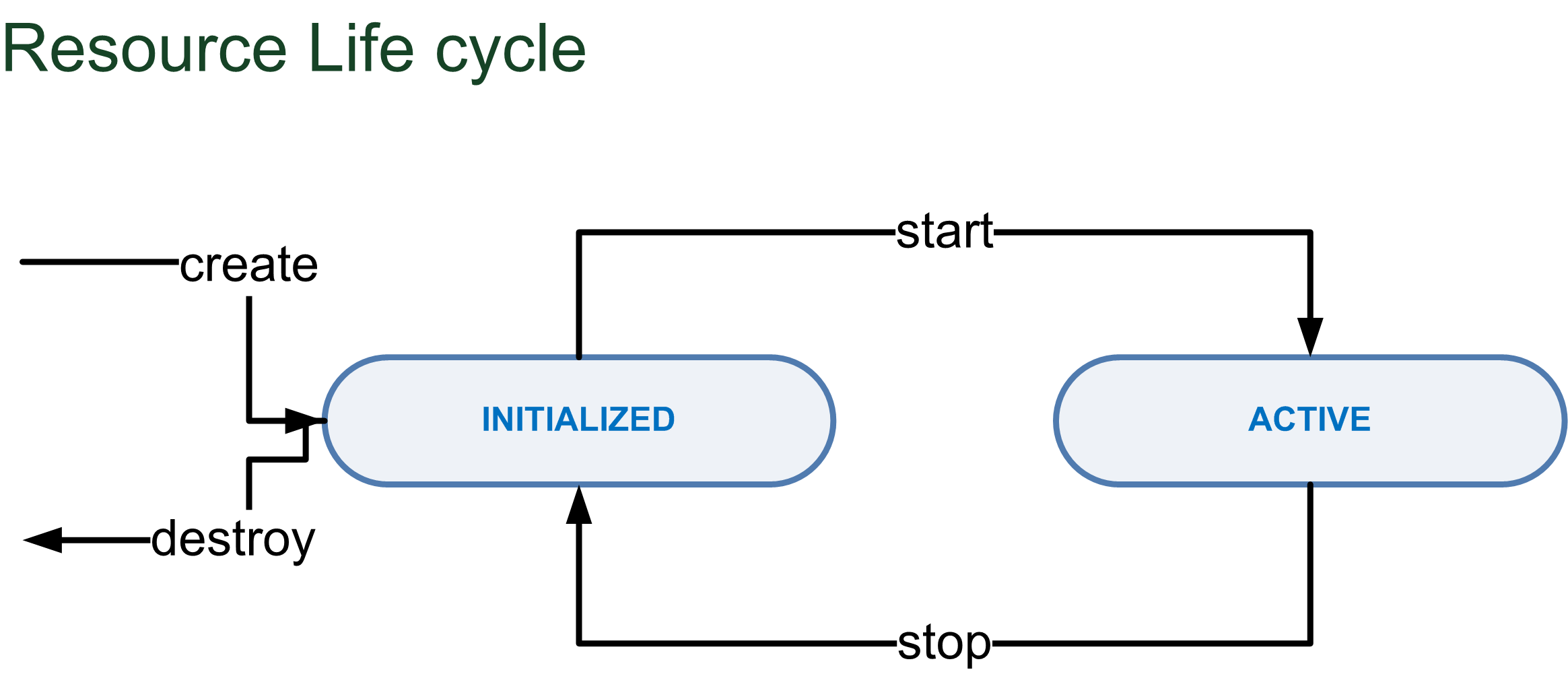...
For the creation of a resource, the ResourceManager uses a description file (ResourceDescriptor) which provides provides the necessary parameters to configure a resource. For example, it contains the type, name or the capabilities that the resource supports. Here is presented an example of a resource descriptor.
| Code Block |
|---|
<resourceDescriptor> <!-- Capability information. It specifies device model and version --> <capabilityDescriptors> <capabilityProperty value="junos" name="actionset.name"/> <capabilityProperty value="10.10" name="actionset.version"/> <information><type>chassis</type></information> </capabilityDescriptors> <!-- Queue capability information. It specifies device model and version. IT IS OBLIGATORY --> <capabilityDescriptors> <capabilityProperty value="junos" name="actionset.name"/> <capabilityProperty value="10.10" name="actionset.version" /> <information><type>queue</type></information> </capabilityDescriptors> <!-- Resource information. It specify type and name--> <information> <type>router</type> <name>junos20</name> </information> <properties/> </resourceDescriptor> |
Model
...
Resource
A resource is the logical representation of a physical or virtual device. As it has been explained it contains the information (model) and features (capabilities) that.necessary to allow Mantychore to work with the device. To create a resource within the Mantychore platform first of all a well defined life cycle is needed. The next figure represents the life cycle scheduled for the resources. As it is apreciated a resource first of all must be created,
Mantychore defines a resource life cycle.Mantychore defines a resource life cycle. In this picture is possible to see the resource life cycle:
The end user user does these state movements via the Mantychore server console
Using the commands provided by the Mantychore server console, the user can control the states of the resource. In the following table can be observed the actions done by the different commands.
The initial state indicates the state from which you can run the command. On the other hand the final state indicates the state where the resource is
once executed the command.
Resource Command | Actions | Initial State | Final State |
| INITIALIZED | ACTIVE |
|---|---|---|---|---|---|---|
create | - read resource descriptor | No resource | INITIALIZED | |||
start | - get capabilities | INITIALIZED | ACTIVE | |||
stop | - reset capabilities | ACTIVE | INITIALIZED | |||
destroy | - delete resource descriptor from the database | INITIALIZED | No resource |
?Model
When a resource is initialized and started, it needs a component which maps the resource’s description. This description is all the information which Mantychore can extract from the resource. For this objective, Mantychore has a model component (based in the CIM specification) where load all this information.
Capability
Mantychore links a set of capabilities to a resource where each capability represents a new feature or ability which a resource can do. For example, a router resource will be able to have capabilities related with operations for the 1, 2 and 3 level network. However, a switch resource will only be able to use capabilities for the 1 and 2 level network.
...
